How troops survive long deployments at sea
- By Travis Pike
Share This Article
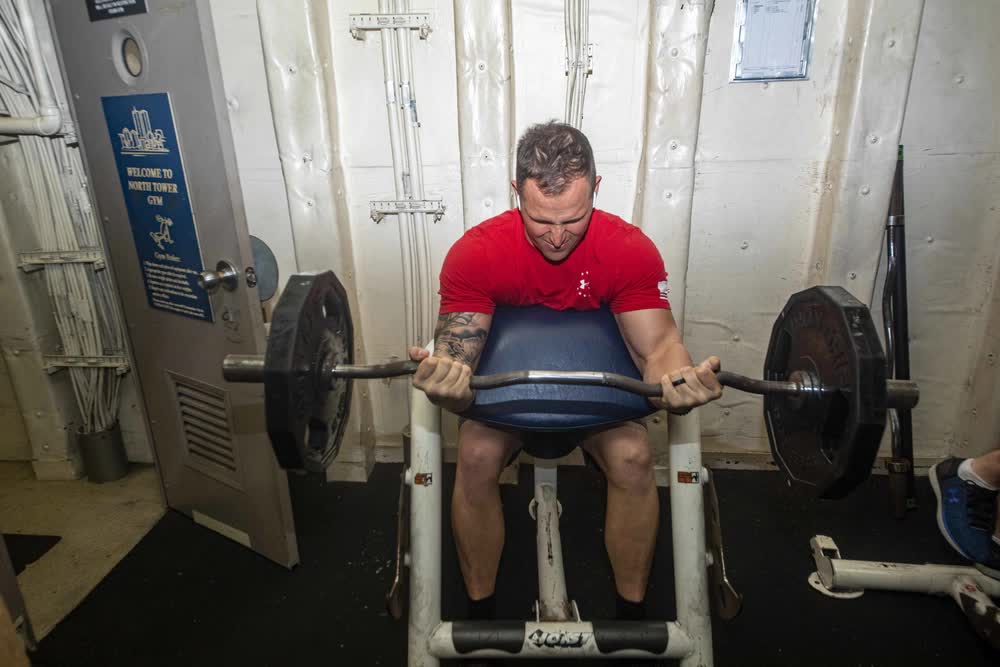
I spent nearly a year on ship as a grunt Marine. At one point, I believe we set a record for the longest sea service deployment during the Global War on Terror. I won’t lie, it was a long time. A few months in, I woke up every morning and spent 30 seconds in an absolute rage, staring at the room of my rack.
Sea service deployments can suck. You aren’t on a luxury cruiser, and the grey walls get old fast. Although we trained, did classes on our jobs, and even did hikes and runs on a tiny ship, we still had an abundance of free time.
Too much free time can be bad for a group of young men trained to fight, but we managed. A big part of living on a ship is about finding ways to entertain yourself, and these are some ways we did that.
Get ripped
Most ships have a gym – and even if yours doesn’t, you can still work out. I got in the best shape of my life on ship. I did a lot of bodyweight exercises and sprints up a well-deck ramp. The trick is to find a simple workout plan and stick to it.
I did a lot of 5X5 workouts because they don’t require much. I also set goals I could meet that were challenging but obtainable. My most memorable was joining the 400 Club, which is done by performing 400 pushups in 20 minutes.
Getting ripped can be one of the best benefits of being stuck on ship and you can’t order pizza at 2 AM on your 36th hour of playing Elden Ring so you can’ readily slip.
Navy College Program for Afloat College Education

If you’re on a ship, there is a specific program for Sailors and Marines called the Navy College Program for Afloat College Education that is tailored to deployed personnel.
This program teams up with educational institutions that allow the Sailor or Marine to work on their college education without the need for constant internet connection. That’s a big benefit because, believe it or not, the internet isn’t always available in the middle of the ocean. If you have the opportunity to further your education on the Navy’s dime, do it, you won’t regret it.
Related: How the military bounced back from the recruiting crisis
Launch a Dungeons & Dragons campaign

A Dungeons and Dragons campaign doesn’t require much, just a rulebook, some pens and paper, and a single set of dice.
You can gather a number of the boys and launch a campaign. It’s a great distraction, allows you to flex your creative muscles, have a little fun, and temporarily leave the ship – at least mentally.
DnD’s rise back to modern nerdom has made it easier than ever to spin up a game. If you don’t care about DnD, games like Cyberpunk and Pathfinder are other similar options. Or, if you want to get away with playing while you should be working, get into Tactical Decision Games.
Start a fight club (kind of)
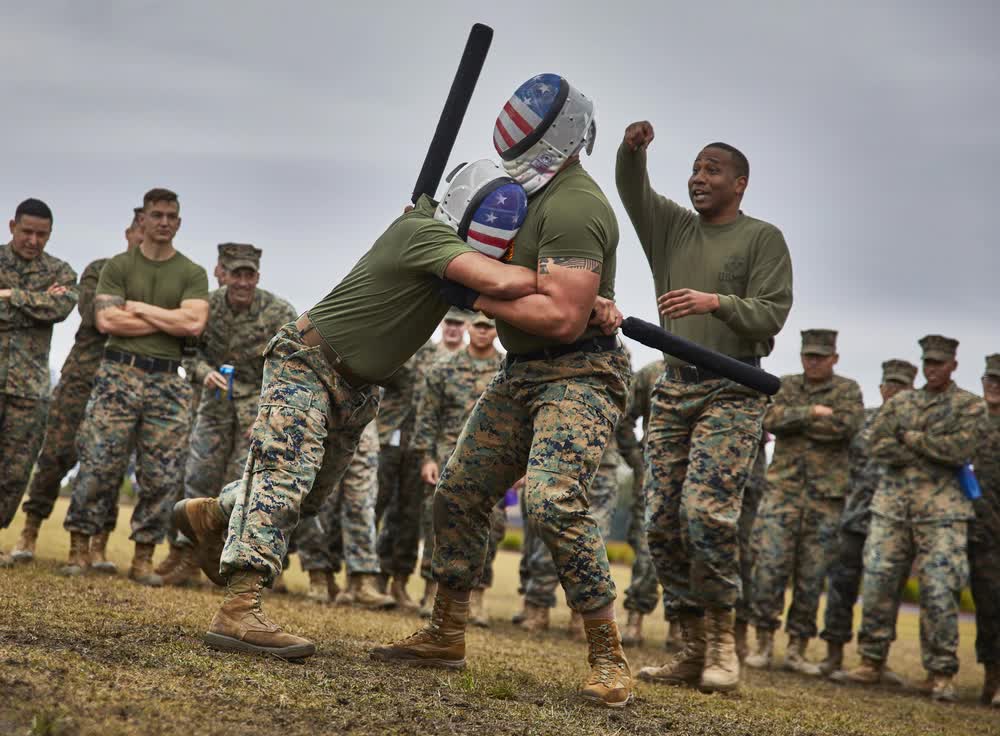
Don’t start a real hidden fight club (although it’s really easy to do in the bowels of most ships). If you’re a Marine, you likely have a Martial Arts Instructor, or MAI, on board; if you’re a Sailor, start asking about one. Martial Arts Instructors can teach martial arts classes and arrange sparring sessions.
A corpsman accompanies the MAI, and the training is always done responsibly. Not only do you get to work on your combative skills, but you also blow off steam, exercise, and learn something new.
We held classes, but also, after hours, grappled and sparred with boxing gloves.
Related: This is why martial arts are still important to the military
Pick up a new hobby

Picking up a new hobby can lead to all sorts of new entertainment. Admittedly, you might find it challenging to find something new to do on ship. You can’t get into equestrian arts on a boat, however, you can do everything from tying knots to photography.
You can get into origami or do like I did and start writing. That’s how I got here. I journaled and later wrote random short stories, and here I am, writing an article for you now. There are lots of little things you can do to learn new hobbies, new skills, and the like. One might just stick.
Read, read, read
Reading is one of the easiest ways to fill your time. Most ships have libraries. Challenge yourself to learn something new or read a piece of fiction you might consider difficult. Sure, stuff like Jack Reacher novels are fun and easy, but there is all the time in the world for the fun stuff once you’re back on land. Instead, onboard, try something harder, something different, and expand your horizons.
Idle hands are the devil’s playground. It’s really easy for a young Sailor or Marine to let too much free time become destructive. I didn’t understand that then, but I certainly do now. You need to occupy your time, hopefully with something that improves yourself, or at the very least adequately entertains you.
Keeping busy helps pass the time and allows you to get through the deployment without wasting hours away. Time is the currency we can’t get back, so don’t waste it.
Feature Image: Interior Communications Electrician 1st Class John Taylor, assigned to the amphibious transport dock ship USS New York (LPD 21), lifts weights in a gym aboard the New York, March 17, 2020. (U.S. Navy photo by Petty Officer 1st Class Lyle Wilkie)
Read more from Sandboxx News
Related Posts
Sandboxx News Merch
-

‘AirPower’ Classic Hoodie
$46.00 – $48.00 Select options This product has multiple variants. The options may be chosen on the product page -

‘Sandboxx News’ Trucker Cap
$27.00 Select options This product has multiple variants. The options may be chosen on the product page -

‘Kinetic Diplomacy’ Bumper Sticker (Black)
$8.00 Add to cart

Travis Pike
Travis Pike is a former Marine Machine gunner who served with 2nd Bn 2nd Marines for 5 years. He deployed in 2009 to Afghanistan and again in 2011 with the 22nd MEU(SOC) during a record-setting 11 months at sea. He’s trained with the Romanian Army, the Spanish Marines, the Emirate Marines, and the Afghan National Army. He serves as an NRA certified pistol instructor and teaches concealed carry classes.
Related to: Pop Culture

How close are the Colonial Marines from ‘Aliens’ to actual Marines
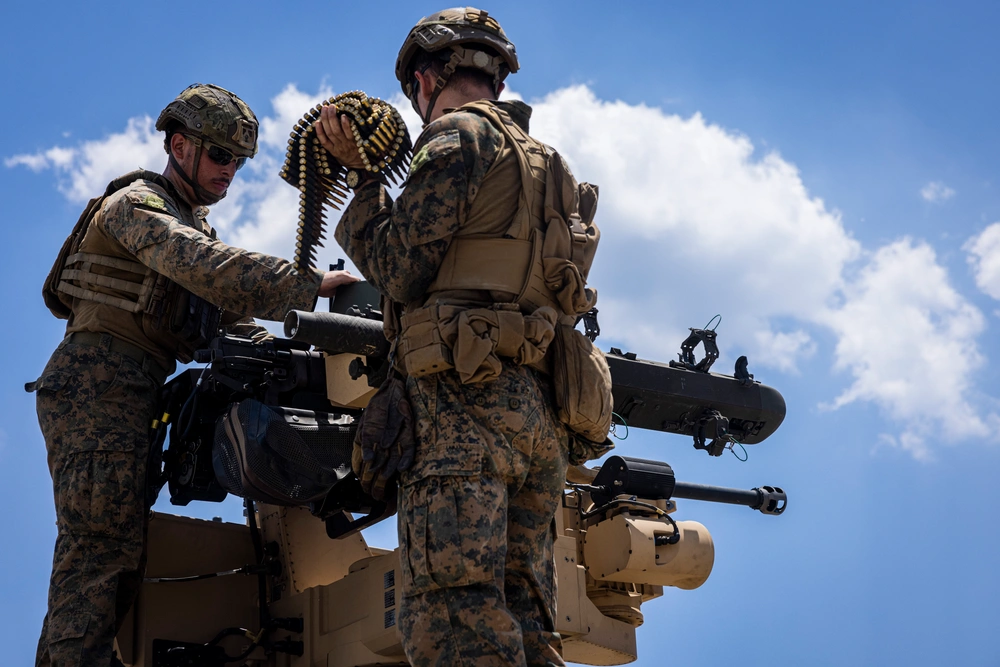
The Marines’ new air defense system is a game changer
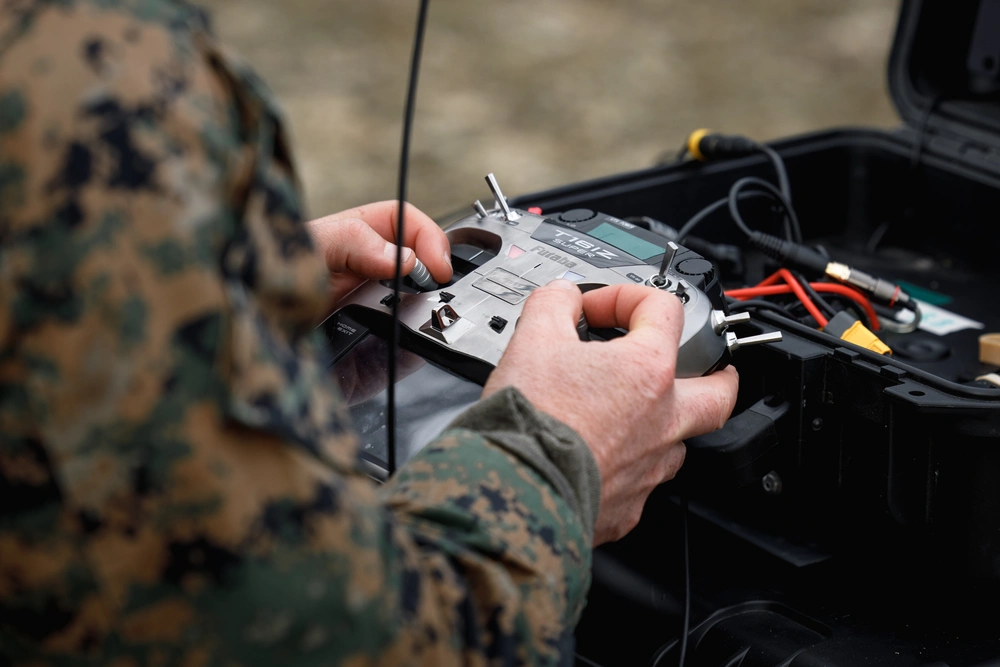
Marine Corps launches attack drone team to stay lethal in the modern battlefield
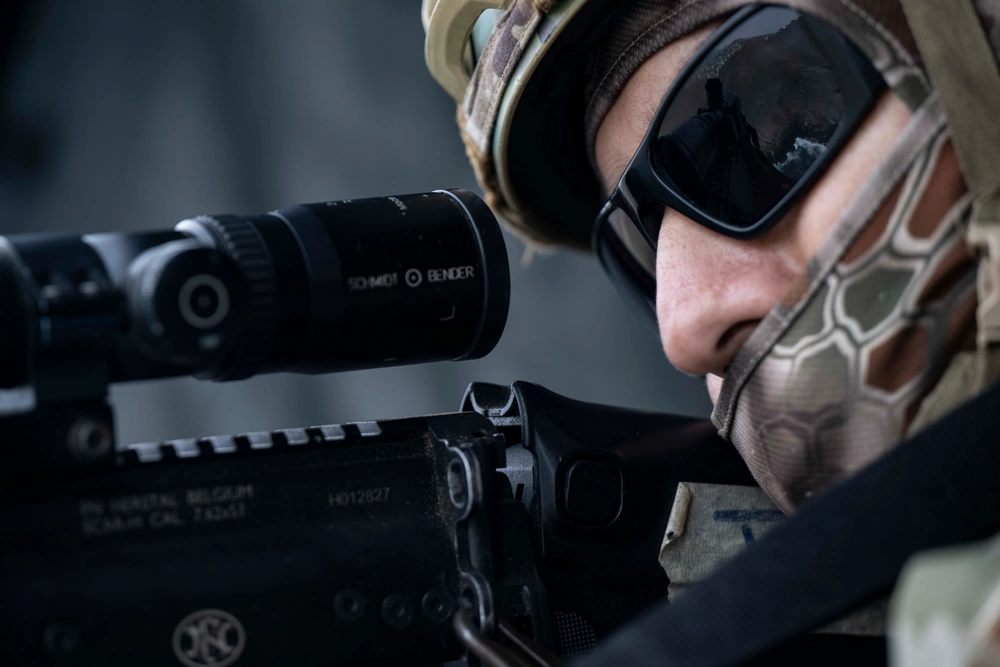
How the AR-18 influenced a generation of service rifles
Sandboxx News
-

‘Sandboxx News’ Trucker Cap
$27.00 Select options This product has multiple variants. The options may be chosen on the product page -

‘AirPower’ Classic Hoodie
$46.00 – $48.00 Select options This product has multiple variants. The options may be chosen on the product page -

‘AirPower’ Golf Rope Hat
$31.00 Select options This product has multiple variants. The options may be chosen on the product page -

‘Sandboxx News’ Dad Hat
$27.00 Select options This product has multiple variants. The options may be chosen on the product page
